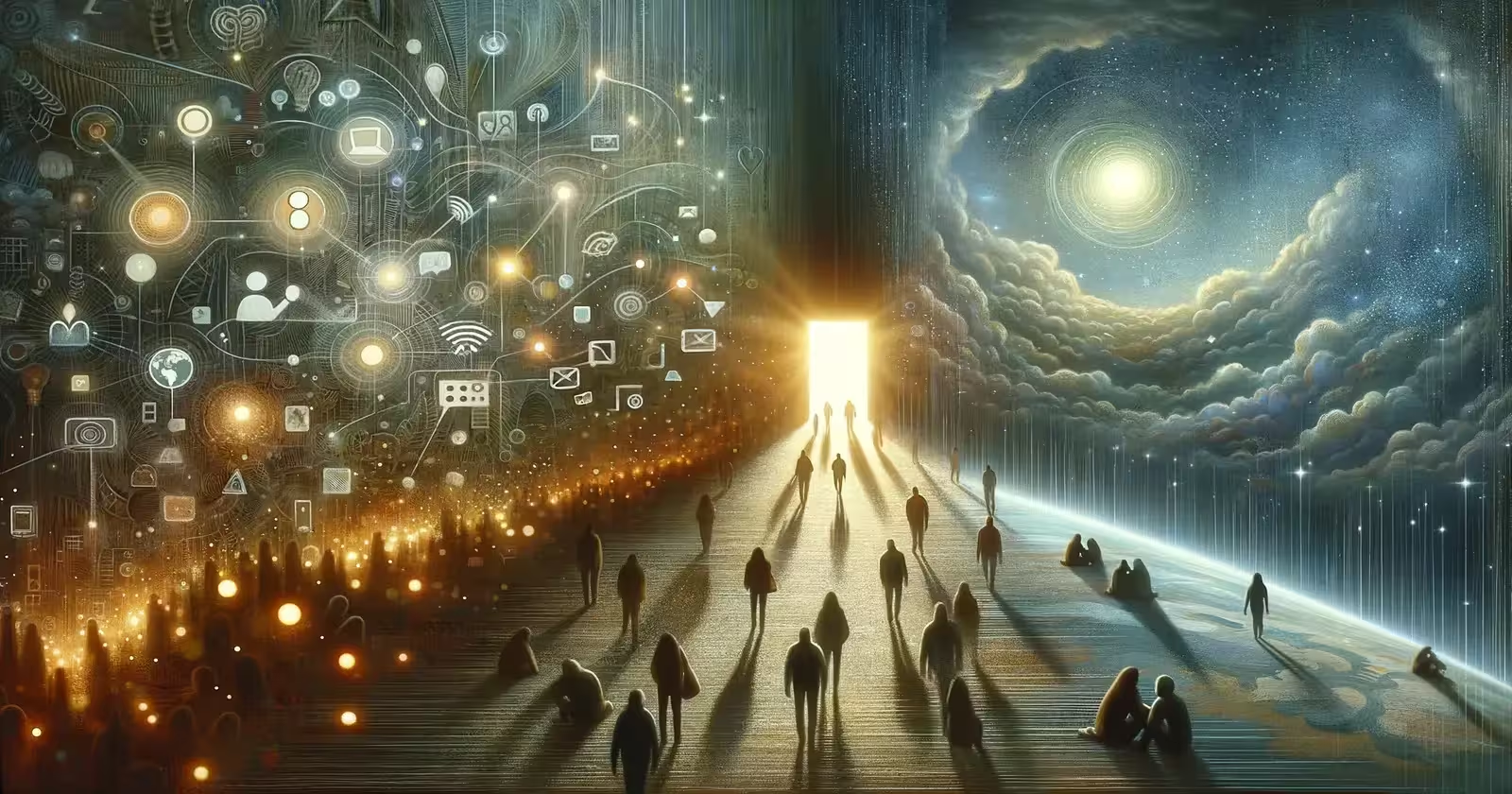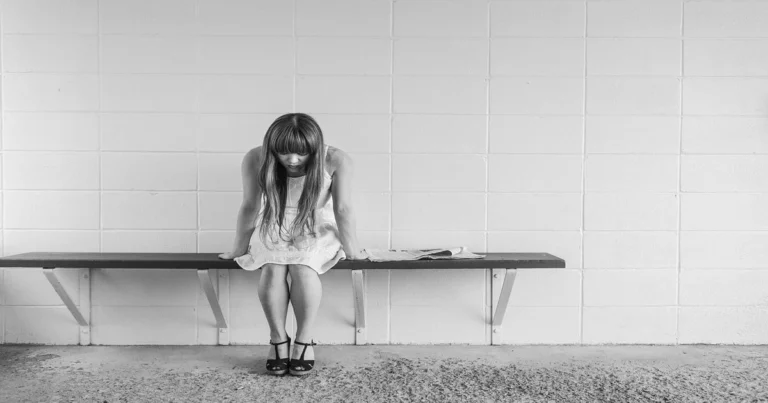What Is Shame: The Impacts Of Shame And A Path to Healing

When we dive into the question, “What is shame?” it’s like opening a door to a room we’ve all been in before. Shame is that tough feeling that sneaks up on us when we mess up or do something we regret.
It’s like a shadow that follows us. It makes us feel as though we’re not quite up to scratch. This is especially true under the eyes of others. We’ve all been there, feeling our cheeks burn because of a blunder or a slip-up.
This feeling is as common as it is intense. It packs a punch on our self-esteem. It makes us want to disappear into thin air.
Now, let’s break it down a bit. Shame is often mixed up with guilt, but they’re not the same. Guilt says, “I did something bad,” while shame screams, “I am bad.” It’s a crucial distinction. Shame doesn’t just make us feel sorry for something we did. It makes us criticize who we are.
And that’s where the trouble begins. Feeling this way about ourselves occasionally can lead to bigger issues. These include feeling down or anxious.
But here’s a twist, shame isn’t always the villain in our story. Some experts think that feeling a bit of shame might have helped people long ago. It kept them in line with social rules to live better in groups.
The problem is when we feel too much shame or let it define us. That’s when it starts doing more harm than good, pushing us away from others instead of fixing mistakes.
Understanding shame—the why’s, the how’s, and the effects—is key to not letting it take the driver’s seat in our lives.
We can work through feelings of shame with a bit of help from online therapy. We can also learn to separate what we do from who we are. Tackling shame involves reaching a state where we can look at ourselves and say, “I’m okay.” We can do this even when we slip up.
Because at the end of the day, we’re all human, and making mistakes is part of the deal. The real challenge is not letting those mistakes define our worth.

What Is Shame
Shame intricately interlaces with our sense of self. It shapes how we interact with the world. It influences how we perceive our place within it. Distinct from guilt, which concerns our actions, shame implicates our very being, casting a shadow over our self-worth.
When we feel shame, it’s not just about regretting something we’ve done. It is a deeper feeling. It is more pervasive, as if we are somehow fundamentally flawed.
Definition and Nature of Shame
At its core, shame is a self-conscious emotion. It emerges in response to a perceived failure to live up to our ideals or the expectations of others. This emotion doesn’t just highlight a discrepancy between actions and standards; it makes us question our value as individuals.
The experience of shame is intensely personal and universally understood. It manifests as a desire to hide or disappear. It is a physical sensation of discomfort that’s both profound and paralyzing.
Guilt focuses on specific behaviors. It suggests “I did something bad.” In contrast, shame envelops our entire sense of self. It suggests “I am bad.”
Historical Perspective
Historically, shame has been viewed through various lenses, reflecting the mores and values of different cultures and eras. In ancient societies, shame acted as a regulatory force, ensuring conformity within the community.
It was not solely negative but served a crucial adaptive function, fostering group cohesion and survival. Over time, as individualism gained prominence, especially during the Enlightenment, the perception of shame shifted.
It became associated with personal failure and moral deficiency. It marked individual inadequacy instead of serving as a communal tool for social cohesion.
In contemporary society, the discourse around shame has further evolved. This change is thanks in part to the work of scholars like June Tangney. Public intellectuals like Brené Brown also contributed to this evolution.
Today, we understand shame as a multifaceted emotion with the power to either motivate change or inflict deep psychological wounds. The balance is in finding the path that acknowledges shame’s role in moral and social development. It requires recognizing when shame becomes destructive.
Shame’s Dual Edge
Shame’s complexity lies in its dual nature. It can motivate individuals to adapt and align with social norms. However, it can also lead to profound feelings of unworthiness and isolation.
The key to understanding shame’s multifaceted impact is recognizing its source and addressing its consequences.
Internalized shame is the shame that we embed within our self-concept. It can lead to chronic conditions such as low self-esteem, anxiety, and depression. In contrast, external shame is rooted in the fear of judgment. It drives us to conceal our true selves. This fosters a cycle of secrecy and disconnection.
Addressing shame requires a nuanced approach. It should differentiate between its adaptive and maladaptive forms. This process encourages self-compassion and promotes open dialogues about vulnerability and worthiness.
We are working to understand the complexity of shame. This effort brings us closer to harnessing its potential for growth. At the same time, we aim to reduce its capacity for harm.
Subscribe to Create Higher Vibrations!
Get Inspiration and Practical advice straight to your inbox.
What Causes Shame
Shame often begins in our childhood. It stems from how we are parented, our failures, and the social expectations we strive to meet. It’s a multifaceted emotion, deeply rooted in the human experience, impacting our self-perception and interactions with others.
Let’s explore how personal shortcomings lead to feelings of shame. We will also examine how societal norms play a role. Together, these elements paint a picture that resonates with our collective consciousness.
How Parents Project Their Shame onto Their Children
Unawareness is the difference between guiding our children and unknowingly projecting our unresolved shame onto them.
When parents operate from a place of pathological shame, they feel worthless not for their actions. Instead, they feel worthless for who they are. They risk passing this heavy burden onto their kids. Let’s explore how this happens and what can be done to prevent it.
Examples of How Parents Project Shame:
Impact of Pathological Shame:
James Baldwin’s words, “I was not born to be what someone else said I was,” remind us of individual autonomy. Each person has control over their identity and worth.
Recognizing and addressing parental shame is essential. It’s about breaking cycles of harm. We need to foster environments where children can grow up feeling valued, capable and loved for who they are. They should not be condemned for their mistakes or imperfections.
Pathways to Healing Parental-Induced Shame:
The journey from recognizing the shadows of shame in our parenting to illuminating paths of empathy and understanding is profound.
We must transform our most painful emotions into lessons of resilience. In doing so, we ensure our children walk a little lighter in the world.
Personal Failures and Mistakes
Imagine the sting you feel when a misstep is exposed, especially one you hoped would remain hidden. This sensation is “shame”, blossoming from the fear that our flaws will define us. It’s the voice inside whispering, “You’re not good enough,” after a blunder, no matter its size.
This internal narrative is often made stronger by times when we don’t meet our expectations or those of others. This can lead to a profound sense of shame.
It’s not merely about the act itself. It’s about the harsh judgment we pass on ourselves. Our mind, often our harshest critic, magnifies this judgment.
We experience shame related to personal failures when these incidents shatter the image we want to present to the world. These incidents break the image we want others to see. They expose our vulnerabilities, making us feel naked and defenseless in the gaze of others.
This exposure is not just about being seen; it’s about being seen and judged as lacking. The depth of this feeling can vary. It ranges from mild embarrassment to profound distress. This range affects our self-esteem and how we relate to others.
It can push us into the shadows. We move away from the connections and support we need. This separation feeds a cycle of isolation and deepening shame.
Social Expectations and Norms
Society wields a powerful influence over how we feel about ourselves. The standards set by our culture, family, or peer groups act as invisible judges, constantly evaluating our actions and decisions.
When we stray from these norms, we might do so through our behavior, appearance, or life choices. Society often responds with a subtle or overt signal: shame.
This societal shame serves as a form of social control, a way to ensure conformity within the group. It’s a tool as old as humanity itself, but in our modern, interconnected world, its impact can be amplified.
Constant exposure to idealized images and narratives through media and social networks increases feelings of inadequacy. It makes us believe we’re perpetually falling short.
This comparison trap is fertile ground for shame. We not only measure ourselves against unrealistic standards. We also do so in a highly public way.
The complexity of shame lies in its dual origins: it’s both deeply personal and inherently social. Our individual experiences of failure intertwine with societal expectations, creating a tapestry of emotions that can be challenging to navigate.
Understanding these sources of shame is the first step in mitigating its impact on our lives. By recognizing the commonality of these feelings, we can begin to foster empathy for ourselves. This empathy allows us to slowly unravel the threads of shame that bind us.
This process isn’t about eradicating shame. After all, it can catalyze growth. However, it focuses on learning to manage shame in a way that doesn’t diminish our sense of self-worth or belonging.
Shame Vs. Guilt
When we talk about shame and guilt, we’re diving into two emotions that can feel similar but have very distinct impacts on our mental health. Understanding these differences is like unpacking two suitcases that look the same on the outside but contain very different contents.
Guilt is the feeling we get when we’ve done something wrong or failed to do something right. It’s about our actions. Imagine you forgot a friend’s birthday and felt bad about it. That’s guilt. It’s like an internal alarm that goes off when our behavior doesn’t match up with our values.
Guilt says, “What I did wasn’t cool,” and it often pushes us to make things right. Maybe you’d call your friend to apologize or plan a belated celebration. Guilt can be uncomfortable, but it’s also a sign that we care about our actions and their impact on others.
Shame, on the other hand, goes deeper. It’s not just about something we did; it’s about who we are. If guilt is feeling bad about forgetting the birthday, shame is thinking you’re a terrible friend or even a terrible person because of it.
Shame attacks our identity, making us feel unworthy of love, connection, or even just taking up space in the world. It’s a painful experience that can make us want to hide or disappear.
Psychological Impacts Related To Shame
The effects of guilt and shame on our mental health are quite distinct. Guilt, while uncomfortable, can be positive. It shows we have empathy and understand the difference between right and wrong.
Guilt motivates us to fix our mistakes, to say sorry, to try harder next time. It’s about learning and growing.
To feel ashamed, though, can be destructive. It doesn’t motivate us to improve; it often just makes us want to withdraw or lash out.
Living with a lot of shame can lead to feelings of low self-worth, depression, anxiety, and even aggression. It’s like carrying a heavy weight that just keeps pulling us down, making it hard to see our value or believe that we can do better.
Types of Shame
When we think about shame, it’s not just one big umbrella. There are different kinds, like internalized shame and social shame, each affecting us in unique ways.
Internalized Shame
This is when we take external messages or experiences of failure and make them part of how we see ourselves. It’s the voice inside that says we’re not good enough because of what we’ve done or who we are.
This kind of shame can stick with us, influencing how we interact with the world, often in harmful ways. It can lead to issues like eating disorders, as we try to control or punish our bodies, or depression, as we struggle under the weight of feeling fundamentally flawed.
Social Shame
This type of shame is about how we fit into society. It’s tied to the expectations and norms of our culture, community, or family. When we don’t live up to these standards, we might feel exposed, judged, and isolated.
Social shame can act as a form of control, keeping us in line with what’s considered acceptable. But it can also stifle individuality and create a culture of fear and conformity.
Both types of shame have their roots in how we’re seen by others and ourselves. However, recognizing them can be the first step in overcoming their grip.
By understanding shame—what it is, where it comes from, and how it affects us—we start the journey toward healing. It’s about moving from a place of self-criticism to one of self-compassion, learning to talk to ourselves like we would a good friend, with kindness and understanding.
Impacts of Shame on Mental Health
Shame goes way beyond just feeling awkward; it digs deep, touching the very essence of who we think we are. It’s not just a surface scratch but a wound that reaches into how we see ourselves and the way we fit into the world around us.
At the heart of shame is this gnawing belief that we’re somehow not enough. We feel that we’re not lovable. We think we’re not worthy of being part of something, or belonging anywhere.
This can deeply shake our confidence. It makes us question our value and worth. This can hurt our mental health.
Self-Esteem Issues
Shame strikes directly at the heart of our self-esteem. When shame becomes internalized, it transforms the way we see ourselves, often leading us to believe that we are fundamentally lacking. This belief can make every failure, no matter how small, feel like a testament to our inadequacy.
Over time, the cumulative effect of these experiences can significantly erode our self-confidence. This erosion makes it difficult to engage in positive self-reflection. It also hinders our ability to see our value.
This degradation of self-esteem affects how we feel about ourselves. It influences our actions and decisions. This can potentially lead to cycles of behavior that reinforce feelings of shame.
For instance, someone struggling with shame might avoid new opportunities because they fear failure. As a result, they miss out on experiences that could build self-efficacy and improve self-esteem.
Relationships and Social Withdrawal
The impact of shame extends beyond our internal world, affecting our relationships and social interactions. Shame often causes people to withdraw, fearing judgment or rejection from others.
This isolation can be doubly damaging, as social support is crucial for mental health and well-being. When we pull back from our connections, we miss out on empathy and understanding. These could help mitigate feelings of shame.
Moreover, shame can strain existing relationships. It can make us hypersensitive to criticism or perceived slights. Conversely, it can lead us to lash out in anger or defensiveness. This behavior protects our fragile self-worth.
These patterns can create a feedback loop. Social interactions become sources of stress and anxiety. This reinforces the impulse to withdraw.
Overcoming Shame: Strategies and Support
Despite its powerful grip, shame is not immutable. With intentional effort and support, individuals can work through shame, moving towards a healthier self-concept and more fulfilling relationships.
Self-Compassion and Forgiveness
One of the most effective tools for combating shame is self-compassion. This involves treating oneself with the same kindness and understanding that we would offer a good friend.
Self-compassion encourages us to acknowledge our imperfections without judgment. It helps us recognize that making mistakes does not make us unworthy of love or connection.
Forgiveness plays a crucial role here. We need to forgive ourselves for our faults. Understanding that everyone has moments of failure helps to alleviate the weight of shame.
Seeking Professional Help
Sometimes, the roots of shame are deep and tangled, woven through our experiences and identities in complex ways. In such cases, professional help from therapists or counselors can be invaluable.
Mental health professionals can offer strategies for understanding and processing shame, guiding individuals through the journey of healing.
Therapy can provide a safe space to explore the sources of shame. It helps identify and challenge negative thought patterns. Therapy also aids in developing healthier ways of relating to oneself and others.
Overcoming shame is not a quick or easy process, but it’s a worthwhile one. Through self-compassion, forgiveness, and professional support, individuals can break the hold that shame has on their lives.
This opens the door to improved mental health, stronger relationships, and a deeper sense of self-worth.
The Role of Social Media
Social media platforms have become arenas where mistakes are not just seen but amplified, inviting public shaming on a massive scale.
This isn’t just about feeling a bit red-faced. It’s about experiencing a wave of shame that can hit like a ton of bricks. This can make someone wish they could vanish into thin air.
It’s one thing to mess up in a small setting and another to have that mistake broadcasted for all to see, turning personal regret into a public spectacle.
This phenomenon of public shaming has given rise to a new kind of pain, one that feels inescapable. But here’s the twist: amidst the harsh glare of digital spotlights, there’s a growing movement pushing for digital empathy.
Imagine scrolling through your feed and, instead of snark and ridicule, you find messages of understanding and support. This isn’t a pipedream; it’s a call to action for all of us online to remember the person behind the post. Digital empathy isn’t just nice; it’s necessary.
It’s about seeing a post that makes you wince and choosing kindness over callouts, understanding over judgment.
Weathering the Storm of Shame With Brene Brown
Brene Brown breaks it down for us: toxic shame is that gut-wrenching feeling of not being worthy of connection, of believing our flaws are all anyone can see. It’s the voice that whispers, “You’re not enough” every time we stumble.
But Brown doesn’t just diagnose the problem; she offers a roadmap to resilience.
Through her eyes, we see that shame thrives in secrecy and silence but wilts under the light of empathy. Imagine messing up. You feel the weight of the world on your shoulders. Instead of sinking into the quicksand of shame, you reach out.
You share your story and hear someone say, “Me too.” That’s empathy in action—the antidote to shame.
Applying Brown’s insights means embracing our imperfections, not as evidence of unworthiness but as proof of our humanity. We need to swap the harsh internal critic for a voice of self-compassion. It reminds us that it’s okay to be a work in progress.
“Owning our story can be hard but not nearly as difficult as spending our lives running from it,” says Brown. Let that sink in. It’s a call to arms. It urges us to face our stories head-on, shame and all. We find strength in vulnerability.
Let’s carry these lessons with us. We can create spaces online and in real life where empathy drowns out shame. There, our stories, with all their bumps and bruises, are met with nods of understanding.
It’s about transforming our interactions. We do this one empathetic exchange at a time. We foster a world where we’re united not by our perfection, but by our shared imperfections.
Final Thoughts
Shame touches deeply, influencing how we view ourselves and our place in the world. It whispers lies about our worth, but through embracing our true selves and offering understanding to others, we start to see through those lies.
Brown teaches us that guilt says, “I did something bad,” while shame says, “I am bad.” Recognizing this difference is crucial. It’s about actions, not our core selves.
The role of social media in shame is undeniable. It can turn small mistakes into public trials. Yet, this same space holds potential for support and kindness. It’s here we can choose to lift each other, transforming our interactions from judgment to connection.
Our journey shows that overcoming shame isn’t about ignoring our flaws. It’s about sharing them. It is about finding common ground in our struggles.
Let’s embrace the idea that empathy dismantles shame. Being kind to ourselves and others builds a world where everyone feels they belong.
In every like, share, and comment, we have a choice. Let’s choose empathy, understanding, and kindness. This is how we break the cycle of shame, one human connection at a time.
Together, we can foster a community that celebrates authenticity and resilience. We show that while we all face challenges, we’re not defined by them.











